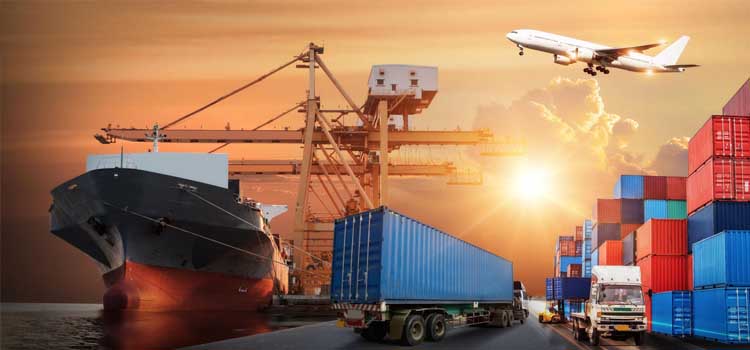International Trade and Business Law
Posted On : May 30, 2022

Table of Contents
The Russia sanctions in 2022 by some big countries, Chinese products banned in India, and even the ‘Swadeshi movement’ in Indian history are well known events. But why did all these events result in a hype? The pretext to the chaos lies with the International Trade and Business law. Such kinds of events put a doubt over the scope of international trade law in curious minds. International law rules out the sovereign powers when it comes to regulations, but not in a comprehensive manner. In the globalised world where the domestic boundaries no longer restrict but promote business transactions across borders, find out how international trade and business law facilitates it.
International Trade and Business Difference
Until it is the exchange of some goods or services among countries across borders, it is referred to as international trade. But a business holds other operations as well including production, capital, personnel, intellect, and the list goes on. By this, we can assume that Business law is a much wider body while the international trade law is a kind of subsidiary to it. For better understanding, the movement of goods or raw materials contributes to the import and export through international trade. Other aspects like immigration and emigration of service personnels, exchange of technology, intellectual property, capital investment etc. falls under the umbrella of international business. For any disputes in this regard, the international lawyers in India may help out with the legality.
International Trade Law
The rules and customary practices that govern trade between two or more countries constitute international trade law. The main idea of this field is to assist domestic businesses to grow in the international space without being discriminated against for roots in foreign land. It promotes the balance among foreign policy and national security. For law students, the transformation of the General Agreement on Tariffs and Trade (GATT) as a treaty into the World Trade Organisation (WTO) as a permanent body is important. It lays the roots of international trade law. Countries approve or disapprove treaties at the international pedestal which decides the ease of business for companies across borders. When a country signs a treaty promising through international trade law, it has to implement the same at the domestic front as well. For instance, India’s obligations against the United Nations Commission on International Trade Law (UNCITRAL) played a key role in the enactment of Arbitration and Conciliation Act, 1996 which is the bible for arbitration lawyers these days.
International Business Law
Unlike the international trade law, the international business law is not confined to selling and buying of products or services. Other aspects which affect a business, i.e. funds, trademarks, economic factors etc. are regulated by international business law. Some of the international organisations responsible for international business law design include:
-
World Trade Organisation (WTO)
-
Organisation for Economic Cooperation and Development (OECD)
-
World Intellectual Property Organisation (WIPO)
-
International Monetary Fund (IMF)
-
International Bank of Reconstruction and Development (IBRD) whose parent organisation is World Bank
Economy of a country mainly depends upon how effectively international business law is being used to boost the business transactions with other countries. The more a country increases world dependence on its own business, the stronger its economy grows. That is why political leaders of a country have a great impact on the economy of a country and international presence.
What are the Sources of International Trade Law?
When someone mentions the ‘sources of international law’, they mean the ingredients that eventually make up that fine piece of international document of law, be it a treaty or a convention. Given below are the roots to modern day trade and business law in the international zone.
Sources of International Trade and Business Law
-
Bilateral Treaties - The international agreements between two countries promising each other on a set of terms and conditions to assist business.
-
Multilateral Treaties - Terms and conditions agreed upon by multiple countries as a group in order to assist business in each other’s domestic domains.
-
International Commercial Practice - The present day practice which prevails in the absence of any established laws with regards to business.
-
International Trade Law Customs - Customary practices which have been prevailing since years in order to assist the modern day international trade and business law.
International Trade and Business Law: Policy and Ethics
Trade which promotes freedom, fair competition, is predictable, transparent, without discrimination, encourages development and economic reform is the ultimate motive of international trade and business law. All such aims and objectives are majorly achieved at the global premise through the following actions:
-
Most Favoured Nation Status - Country with an MFN status promotes equal treatment of all the trade partners of such country.
-
Tariffs - Regulation of tax imposed by one country over the goods or services imported from another country.
-
National Treatment - Laws promoting treatment of imported products just like that of domestic ones. The practice prohibits discrimination and promotes fair treatment of foreign goods or services.
-
Anti-Dumping Laws - Laws that prohibit companies from selling goods at a comparatively lower price in the international market (called as dumping) to save domestic interests.
-
Subsidies and Countervailing Measures - Rules set for government subsidies to curb their harmful effects on international trade and commerce.
Factors affecting (driving) International Business
Given below are the factors which are focussed upon while drafting international trade and business law documents. These have the ability to spark or blow the fire of international trade laws.
-
Liberalisation and Globalisation
-
Availability of Raw Materials
-
Growth in Market Share
-
High Cost of Transportation
-
Availability of Technology
-
Expanding the Production Capacities
-
Availability of Competent Human Resources
-
Political Stability vs. Political Instability
-
Limited Home Market
-
Higher Rate of Profits
Importance of International Trade Law and International Business Law
The types of international laws assist cross border regulations in different aspects. Apart from other facets, international trade and business make up most of why globalisation is the new normal. People have gotten the opportunity to expand their business far away in other nations and businesses are enjoying this fact. Although COVID-19 and major lockdowns proved to be a setback, the world is coming back to coping with the losses slowly and steadily. The reason behind such motivation towards recuperation of international trade is the benefits which back the parties and countries involved as shown below:
Benefits of International Trade and Business Law
-
Increased Socio-Economic Welfare
-
Wider Market
-
Reduced Effects of Business Cycles (Recession and Boom)
-
Large-scale Economies
-
Reduced Risks
-
Opportunity to Domestic Business
-
Economic Growth of the World at large
-
Optimum and Proper Utilisation of World Resources






















